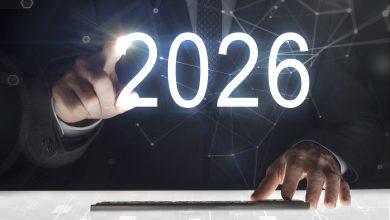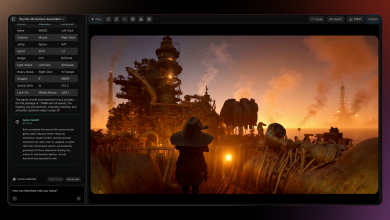Artificial intelligence (AI) is changing the recruitment process. The jury is still out if this is better for candidates, or just more efficient for the recruiting company. Most organisations are now using some sort of software to do things like filter job applications, screen CVs, and keep candidates up to date, but more are now experimenting with using AI in their end-to-end recruitment processes.
AI, at its best, can save recruiters time, help find the right talent, and deliver new insights into people and processes. It’s also proving beneficial in helping to remove some bias from the recruitment process and in retaining skilled recruiters. However – and it’s a big caveat – there is a really important discussion to be had around different potential bias and AI, and whether AI is best-suited to making decisions around human employment.
There are four core areas where AI is being used to support recruiters:
1. AI can save time and create a more efficient process – but don’t let it be too restrictive
Tools like AI for chatbot-enabled automation can replace repetitive tasks (such as job posting and candidate screening), or AI-enabled candidate sourcing and candidate engagement. AI can even be used for video interviews. These tools can also have a significant impact on reducing the time to hire.
As more administrative and repetitive tasks are assigned to automation technology, recruiters can focus on areas where they can add the greatest value. For example, they would have more time to get to know a shortlist of candidates – spending more time on the interview process and investing time in candidate development.
The risk here is that the AI will make a decision – either through the first filter or in an automated job interview – and reject a candidate that may not meet the technical criteria, but who has qualities that could stand out in a human interview process. For example, someone looking to change careers may not have the right number of years in the industry specified in the job spec, but could have fantastic transferable skills. Such an oversight would be hugely frustrating for both the recruiter and the candidate. There is also an obvious risk of programmed bias.
2. AI can help remove bias from the recruitment process (if the AI isn’t inherently biased)
Having said that, AI trained well can help to remove human bias from the process, when recruiters use it to support skills-based hiring by matching key skills to roles. AI can also support an organisation’s diversity recruitment goals.
However, there’s a risk here too. It’s possible that the AI itself can be biased if it has been trained by biased data sets, or by humans with biases of their own. It’s especially a problem when programmers train AI using historic data sets. A machine learning model looks for patterns. If the patterns it is trained on (for example, gender, age, ethnicity) are biased, the results will be biased also.
But, if AI is used to complement the recruitment process and people are aware of possible bias issues (and take steps to mitigate those issues), these tools can help create a fairer recruitment process overall.
3. AI can help recruiters discover and develop the right talent
Recruiters can use AI to uncover hidden talent and develop their skills, as well as identifying the right external talent.
For example, it can assist in matching key skills to roles, identifying skills needs and gaps. It can show recruiters which roles and career paths could be the ideal fit for candidates identified as high-potential.
But, like any system, AI can be played if the candidate knows how. An AI screening solution is trained to look for certain skills and capabilities. If a candidate knows what these are, they can easily add them as words to a CV (sometimes hidden in white text), regardless of the reality of their skill set (which can end up causing recruiters to spend more time filtering candidates than they’d anticipated).
4. AI delivers insights to make better hiring decisions
AI can be used to analyse data and deliver insights to make better recruiting and HR decisions. For example, it might examine data from different scenarios that could help predict (and prevent) attrition, or identify core skills needed in the future that might be missing from a team. It will highlight trends, run reports and provide benchmarking data. These kinds of insights can help recruiters make better hiring decisions.
In summary: AI in recruitment can improve efficiency, help recruiters manage candidate selection, predict skills needs and provide in-depth insights. But it comes with a word of warning – AI is only as good as the humans who make it. Sometimes, we need to override technology with human decisions; we also need to be aware that, as we solve one problem, namely efficiency, we may create another. The last thing companies need is a system that promotes bias in hiring, or can be gamed by those in the know for unfair advantage.




One Comment